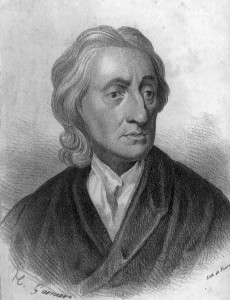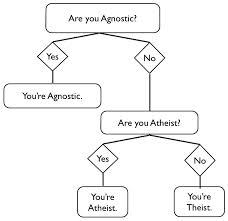 Over the past several years, I have frequently returned to a question that a friend asked me many years ago, the question that in many ways is the central question I have been considering in this blog over the past four-and-a-half years: How can you be a Christian and a philosopher at the same time? There are all sorts of answers available to this question, the simplest of which is “I can’t.” This would open the door to choosing one or the other. I know myself well enough to realize that if “choose you this day whom you will serve” was truly the only option, I would choose philosophy and try to find ways to walk away from my faith tradition. The spirit of critical thinking and skepticism is too strong in me to accept a framework of belief without constant challenge and questioning. I spent many years—most of my life, in fact—attempting to compartmentalize philosophy and faith. For me, at least, it did not work.
Over the past several years, I have frequently returned to a question that a friend asked me many years ago, the question that in many ways is the central question I have been considering in this blog over the past four-and-a-half years: How can you be a Christian and a philosopher at the same time? There are all sorts of answers available to this question, the simplest of which is “I can’t.” This would open the door to choosing one or the other. I know myself well enough to realize that if “choose you this day whom you will serve” was truly the only option, I would choose philosophy and try to find ways to walk away from my faith tradition. The spirit of critical thinking and skepticism is too strong in me to accept a framework of belief without constant challenge and questioning. I spent many years—most of my life, in fact—attempting to compartmentalize philosophy and faith. For me, at least, it did not work.  The time came to either walk away from faith, as many philosophers have done over the centuries, or to find a new way.
The time came to either walk away from faith, as many philosophers have done over the centuries, or to find a new way.
That “new way,” for me at least, involves allowing the energies of critical thinking and faith to interact with each other regularly and vigorously without pre-conception. It requires re-imagining basic concepts such as “evidence” and “fact,” as well as learning to create a large foundational space for subjective experience in my edifice of belief. This new way demands that I both allow that there are limitations to our natural human powers of reason and logical thinking, while at the same time never assuming that I know where those boundaries lie nor when I have reached them. Perhaps most importantly, this new way embraces both the reality of what is greater than us and the expectation that the lines of communication between that transcendent place and our human reality are open and available for exploration. My most recent engagement with these issues is focusing on the relationship between critical thinking and hope, the tension between cynicism (too much critical thinking) and naïveté (too much hope). As is often the case, I have found the work of Marilynne Robinson useful here.
In “Metaphysics,” one of the later chapters in her recent collection of essays, The Givenness of Things, Robinson engages with the dynamic interplay of faith and critical thinking. Her baseline commitments are similar to my own—she is committed to excellence in reasoning and critical thinking, but is equally committed to her faith. Her faith commitments are to Calvinism; her essays frequently include advocacy for a faith framework which in the minds of many is rigidly conservative and suffocatingly restrictive. The faith I was raised in has many Calvinist features, most of which I no longer accept. Robinson’s effective use of reason in defending her faith is always impressive and occasionally convincing; in “Metaphysics,” however, she bumps directly into a boundary from the reason and critical thinking side.
Some issues are just beyond the reach of our natural abilities, Robinson thinks—predestination and the problem of evil are her two examples—in such cases she suggests that we take the advice of the great philosopher and occasional theologian John Locke.  Noting that Locke seeks to “free thinking of artificial constraints by acknowledging real and insuperable limits to the kinds of things we can think about fruitfully,” Robinson writes that
Noting that Locke seeks to “free thinking of artificial constraints by acknowledging real and insuperable limits to the kinds of things we can think about fruitfully,” Robinson writes that
When there is no way to understand without compromising the nature of what is to be understood, I heed Locke’s advice. I am content to “sit down in a quiet ignorance” of those things I take to be beyond the reach of my capacities.
This is a loaded suggestion, to say the least. As much as I admire Robinson’s work, I find at least two troubling matters here.
First is “the nature of what is to be understood.” It is one thing to believe that beyond the reach of our natural capacities there is something we should seek to understand—with that I fully agree. It is quite another thing to assume that the nature of what is to be understood is known clearly enough that we can sort between which proposed ideas compromise that nature and those that do not. Their is an inherent contradiction in saying that “there is something important beyond the reach of our natural capacities, and the nature of that something is as follows . . .” Such parameters are far too close to dogma and doctrine for my taste. Robinson’s own example of the problem of evil is a case in point. For centuries thinkers have approached this problem armed with various assumptions concerning the nature of God— God is omniscient, omnibenevolent, omnipotent, and so on. And with these assumptions, the problem cannot be solved or even addressed fruitfully.
God is omniscient, omnibenevolent, omnipotent, and so on. And with these assumptions, the problem cannot be solved or even addressed fruitfully.
Robinson chooses at this point to adopt “a quiet ignorance”—we cannot figure this out. I choose, instead, to test the assumptions—what if one or more of our “givens” concerning God are wrong? How might taking that possibility seriously open new avenues of thought and exploration? Perhaps my favorite of all the courses I have taught in the past twenty-five years, a course that I am currently teaching, is built on just that possibility. Maybe rather than giving up in reverential ignorance, we should step into the tension between what we think we know and what lies beyond. Citing Locke, Robinson writes that “thinking that we know more than we do . . . blinds us to our ignorance, which is the deep darkness where truth abides.” I suggest that to assume that we know much about the nature of the divine is a prime example of “thinking that we know more than we do.”
My second concern has to do with “the reach of my capacities.” A number of months ago I read an interview with a philosopher who is also an atheist. She said that the issue of God’s existence “is settled to my satisfaction”—God doesn’t exist.  The larger issue is “when do I stop asking? When is enough enough?” This is a highly subjective matter, one that will be settled by many things in addition to logic and reason. In this Marilynne Robinson is not different from the atheist philosopher. Each of them has established the extent of “the reach of my capacities” to her satisfaction, something that all of us do but that no one should pretend to be an objective boundary that applies to all human beings. Each of us has a self-imposed limit beyond which we choose a “quiet ignorance.” I find more and more that wherever my boundary is, I have yet to reach it. Accordingly, “quiet ignorance” is not an attractive alternative.
The larger issue is “when do I stop asking? When is enough enough?” This is a highly subjective matter, one that will be settled by many things in addition to logic and reason. In this Marilynne Robinson is not different from the atheist philosopher. Each of them has established the extent of “the reach of my capacities” to her satisfaction, something that all of us do but that no one should pretend to be an objective boundary that applies to all human beings. Each of us has a self-imposed limit beyond which we choose a “quiet ignorance.” I find more and more that wherever my boundary is, I have yet to reach it. Accordingly, “quiet ignorance” is not an attractive alternative.
Channeling John Locke one more time, Marilynne Robinson writes that “assumptions and certitudes imposed on matters that should in fact be conceded to ignorance warp and obstruct legitimate thought.” Point taken. Let’s also be aware that these very assumptions and certitudes frequently are clothed in the garb of unquestioned preconceptions. One person’s ignorance is another person’s legitimate thought.













